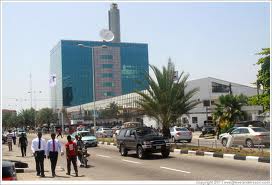The Constitutionality of GEJ’s Emergency Rule in 3 States (I)
Misbau ‘Mislaw’ Lateef
After what seemed an endless cluelessness on how to confront the Boko Haram insurgency in some parts of the Northern Nigeria, President Goodluck Jonathan eventually put an end to his pussyfooting, or so it seemed, by recently slamming an emergency rule on the apparently most-insurgent-ridden states of Yobe and Borno on the one hand, and Adamawa, considered a less insurgent ridden zone by not a few analysts, on the other hand.
Notwithstanding the quite understandable surprising inclusion of Adamawa State in the emergency proclamation, one thing that cannot however be gainsaid is the fact that the President’s action, even with the few criticisms and objections here and there – particularly from the North, is a popular decision. That the near unanimous public endorsement of the proclamation is less rigorous and uncritical, as some analysts would insist, is however another thing entirely.
But just how constitutional is the President’s proclamation in the affected states? This is exactly where there has been sharp disagreement among many. The disagreement, it must be noted, is not on whether the President has the powers to make such a declaration (for the President is certainly vested with such powers) but rather on the nature and mannerism of the proclamation. Thus, discounting those outrightly opposed to the emergency proclamation- and they are very few, the disagreement on the nature or mannerism of the emergency proclamation may be classified alongside two groups.
To some, the first group that is, leaving the democratic institutions constituting the Executive and the Legislature intact as the President has done – in a manner clearly departing from the tradition of emergency rule Nigerians are used to, makes the proclamation a half-hearted and politically expedient action than is constitutionally expected or envisaged. In other words, this group is saying an emergency proclamation must necessarily supplant all democratic institutions including but not limited to removal by the President of Governors of the respective states and the suspension of their Legislatures.
Yet, to many, of the second group, the preservation by the President, wittingly or unwittingly, of such democratic institutions in spite of the emergency proclamation is a constitutional master stroke that will eventually strengthen our constitutional democracy. To be clear, both of these two groups are agreed on the necessity of the emergency proclamation but are only disagreed on its mannerism and implications. It bears saying, at this juncture, that it is to this latter group that yours sincerely belong.
The first group who supports the emergency rule but all the same considers it a half hearted or incomplete intervention hinge their conviction, rather strangely, not any express provisions of the 1999 Constitution of the Federal Republic of Nigeria but on some extraneous considerations like what they consider the “philosophy”, “jurisprudence” and/or “traditional” notion of what an emergency proclamation had been in history or is.
In other words, none of the proponents in this first group has been able to back up their proposition with any express, clear and unambiguous provision of the 1999 Constitution of the Federal Republic of Nigeria. They contend, in summary, that keeping the Governor in office and allowing the House of Assembly to function, will be counterproductive to and frustrating the emergency proclamation. That this assertion begs the question of who is actually in control of the security apparatuses and institutions, and hence has the major, if not sole, responsibility of securing lives and properties all over Nigeria, does not seem to occur to this group.
The second group, on the other hand, hinge their conviction strictly on the 1999 Constitution which, as they strongly contend, does not in any of its provisions empower the President under whatever guise including but not limited to an emergency proclamation, to remove the governor of a state or suspend the House of Assembly of a state.
The second group contend further that if the Constititution had intended or contemplated any such power for the President it would not have made express provisions elsewhere in the same Constitution (Sections 188 and 11) on the circumstances for removal of a governor or suspension of a House of Assembly, or better still, it would not have started the provision of Section 305 on emergency proclamation with such a restrictive phrase as “subject to provision of the Constitution” – which in effect means that Section 305 which empowers the President on emergency proclamation must be read alongside with and subject to other provisions of the Constitution.
To be sure, a state of emergency is an extra-ordinary declaration that may suspend some normal functions of the executive, legislative and judicial powers of the state as well as alerting citizens to change their normal behaviours. It can be used as a rationale for suspending rights and freedoms, even if guaranteed under the Constitution. Such declarations usually come during a time of natural or man-made disasters, during periods of civil unrest or following a declaration of war or situation of international or non international armed conflict.
Now, Section 305 of the 1999 Constitution of the Federal Republic of Nigeria provides for the proclamation and imposition of a state of emergency covering the whole country or in any part of it. This section empowers the President to issue a proclamation of a state of emergency by way of official Gazette. It states under sub section (1) that:
Subject to the provision of the Constitution the President may by instrument published in the official Gazette of the Government of the Federation issue a proclamation of a state of emergency in the Federation or any part thereof.
Subsection (3) states that the President shall have power to issue a proclamation of a state of emergency only when:
a. The Federation is at war;
b. The Federation is in imminent danger of invasion or involvement in a state of war;
c. There is actual breakdown of public order and public safety in the Federation or any part thereof to such extent as to require extraordinary measures to restore peace and security.
d. There is a clear and present danger of an actual breakdown of public order and public safety in the Federation or any part thereof requiring extraordinary measures to avert such danger.
e. There is an occurrence or imminent danger or the occurrence of any disaster or natural calamity, affecting the community or a section of community in the Federation.
f. There is any other public danger which clearly constitutes a threat to the existence of the Federation.
g. The President receives a request to do so in accordance with the provisions of subsection (4) of this section.
*********************************
To be concluded next week.
Established in March 2013, JarusHub is a Nigerian information hub with focus on career and management. It is rated Nigeria's most authoritative destination for online career resources. It parades an array of Nigerian professionals who share their career experiences with a view to bridging career information gap and mentoring a generation to success. Whether you're a student, a recent graduate or an established professional, or even an executive, you will always find something to learn on JarusHub. All enquiries to jarushub@gmail.com or 0808 540 4500. Facebook: www.facebook.com/jarushub; Twitter: @jarushub or @mcjarus.
Let us have your say by leaving a comment belowCancel reply
Recommended For You
-
Beyond the Office Space: Where Deals Get Sealed
August 20, 2013 -
10 Silly Mistakes Job Seekers Make (i)
November 15, 2013 -
How Is Technology Shaping the Recruitment Industry?
November 7, 2016







